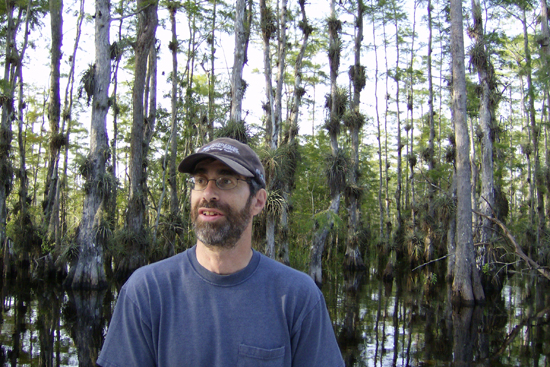Global Warming Research Heats Things Up
Computer modeling is further evidence of human influence

For years now, environmental scientists have puzzled over a peculiarity of global warming: From 1998 to 2008, while the production of warming greenhouse gases increased, the temperature of the earth’s surface didn’t budge. Now Robert Kaufmann, a College of Arts & Sciences professor and chair of the department of geography & environment, has found an explanation: sulfur particles, emitted mainly from coal-burning power plants in Asia, have reflected so much solar energy away from the earth that they mitigated the warming influence of the greenhouse gases.
Working with researchers from the University of Turku in Finland and from Harvard, Kaufmann analyzed data that might influence the earth’s surface temperature collected between 1998 and 2008, including such things as greenhouse gas emissions, incoming radiation from the sun, sulfur pollution, and El Niño and La Niña warming and cooling patterns. The researchers plugged their data into a computer model, and found that it replicated the actual conditions: even while carbon dioxide increased, the surface temperature remained steady.
“We showed that a model based on the theory of anthropogenic climate change could be explained by the observed temperatures between 1999 and 2008,” says Kaufmann. “It’s a simple and elegant test of the hypothesis.”
The bad news, says Kaufmann, is that his scientific evidence that climate change is indeed influenced by human activities was “trashed by Rush Limbaugh,” whose remarks precipitated a rash of hate mail sent to Kaufmann.
What happens next, says Kaufmann, is good news and bad news. China, which doubled its coal consumption in just four years in the early 2000s, is now using scrubbers to reduce sulfur emissions, a move that will clean up the atmosphere but may also lead to a period of rapid warming.
The study was published in the July 5th edition of Proceedings of the National Academy of Sciences.
Art Jahnke can be reached at jahnke@bu.edu.

Comments & Discussion
Boston University moderates comments to facilitate an informed, substantive, civil conversation. Abusive, profane, self-promotional, misleading, incoherent or off-topic comments will be rejected. Moderators are staffed during regular business hours (EST) and can only accept comments written in English. Statistics or facts must include a citation or a link to the citation.